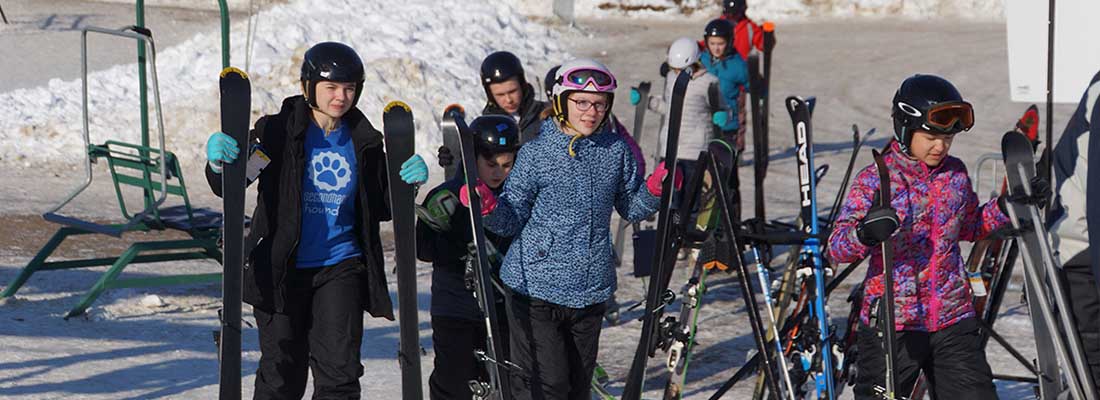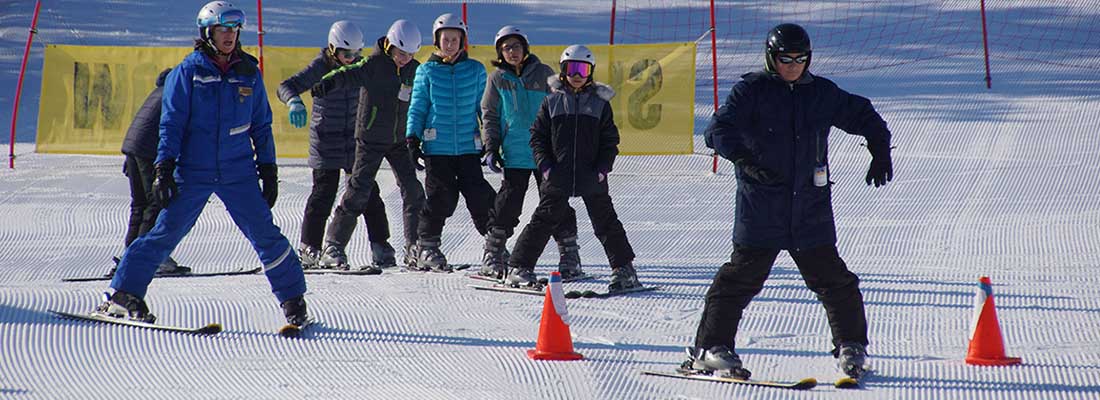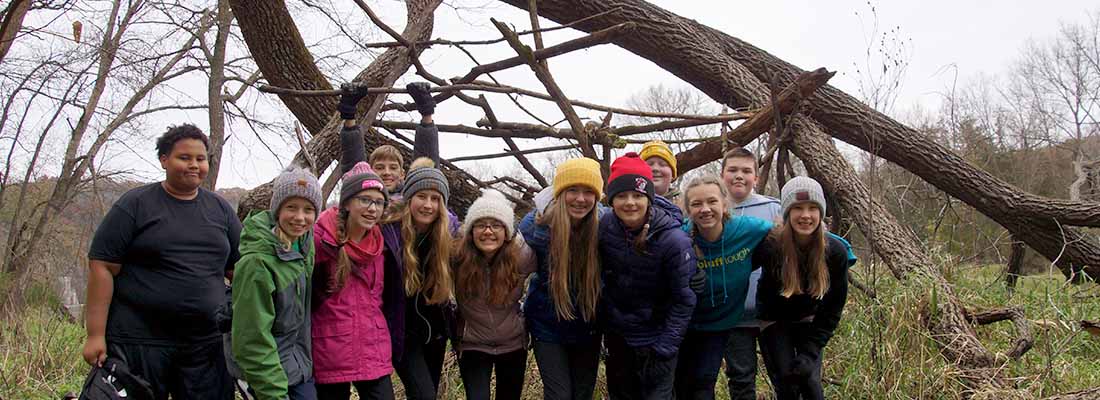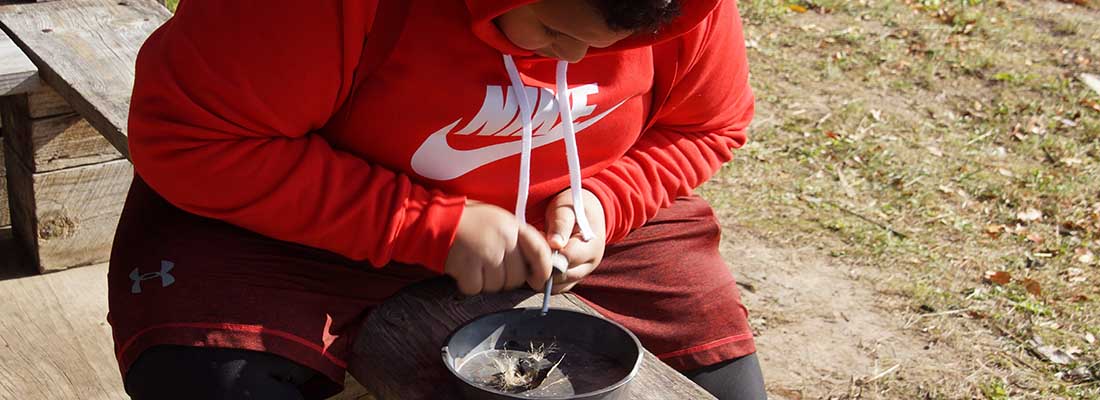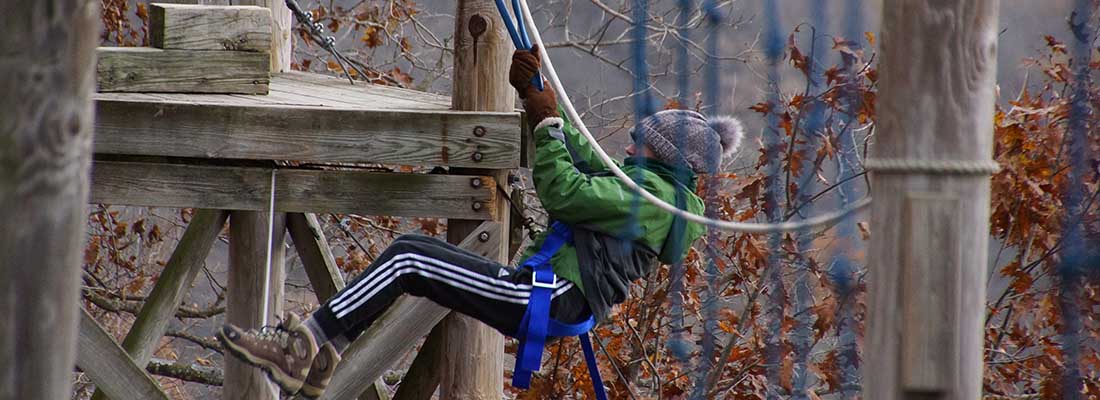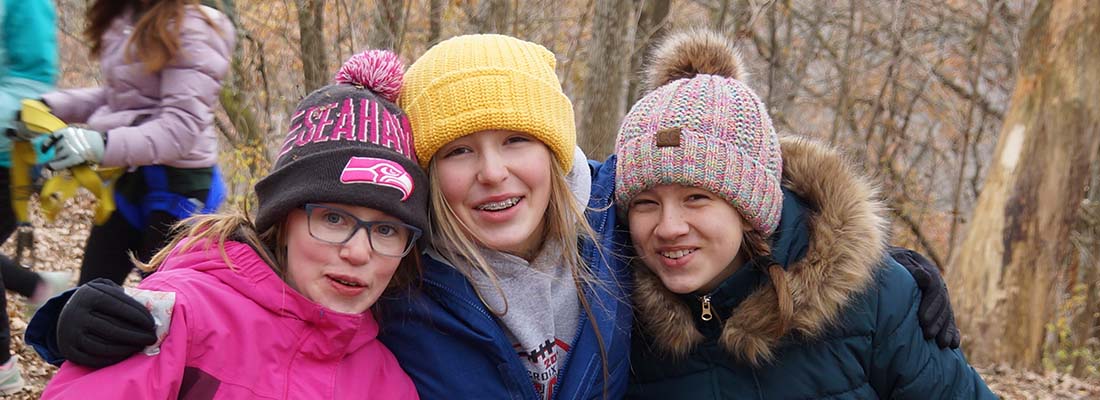LOCOL FAMILIESIN
Middle School – Understanding Learning, Organizing and Independence
Our Middle School program lays the groundwork for student success in the transition to High School. In Grades 5-8, students develop an understanding of their own approaches to learning, increased independence and student responsibility, and the importance of service to others. Through leadership classes and daily activities, middle school students can learn to build healthy relationships with their peers. Outside field trips and community activities allow each student to realize that showing love and compassion to others can be very rewarding.
Along with a challenging curriculum students are exposed to outside learning opportunities, a second language and advanced math classes which prepare them for High School. We believe each of these areas gives students the ability to recognize their personal gifts and talents, try them out and see how they can put them to use later in life.
Middle School Highlights
Experiencing, growing, and guiding leaders of tomorrow
discover
uncover and develop talents
achieve
finding success in challenges
lead
putting talents to use
LEADERS OF TOMORROW
Students meet on a weekly basis to discuss and practice leadership skills through a variety of real life exercises. They learn about establishing goals, core values, leadership styles, and ways they can grow to be influential leaders in their school, work, community and church. We believe teaching them to be positive role models begins in middle school where they set the example.
Learning outside the classroom
Crown of Life provides an amazing opportunity for students to experience the outdoors. Programs are developed to stretch students’ comfort zones and learn that it is exciting to try, learn, experience and achieve new things. The goal is to meaningfully engage students, and to foster a love of nature and respect for our interconnectedness. Students have an opportunity to downhill ski, zip-line through forests, learn survival skills in an outdoor environment, experience new cultures and forge new friendships.
 “Middle School students can feel lost as they begin to stretch their wings of independence. Because our teachers foster an environment of care, creativity, and growth in and outside the classroom, we see our students grow into confident students, friends, and leaders who are ready for their next education step.”
“Middle School students can feel lost as they begin to stretch their wings of independence. Because our teachers foster an environment of care, creativity, and growth in and outside the classroom, we see our students grow into confident students, friends, and leaders who are ready for their next education step.”— David Mielke, Principal
Curriculum
Math
Crown of Life math courses are taught at the same time of day so students have the ability to advance to another level. Saxon Math is taught Kindergarten through 8th grade.
5th Grade
- Missing addends, subtrahends, and factors
- Creating graphs: bar, histogram, line, pie chart, pictograph
- Word problems about combining, separating, equal groups
- Multiplying by 3 Factors, Dividing with remainders (working with Mixed Numbers), Multiplying and Dividing by Decimal Numbers
- Interpreting and Converting Fractions, Decimal and Percents
- Polygons (naming, drawing, measuring)
- Perimeter, Area and Volume
- Reading Scales and measurements
- Graphing Points on a Coordinate Plane
- Reducing Fractions (Simplest Form)
- Greatest Common Factor and Least Common Multiple
- Reciprocals and Ratios
6th Grade - Course 1
- Computation and problem solving skills
- Critical thinking skills and real world applications
- Addition, subtraction, multiplication, and division of decimals, fractions and percents
- Place value through trillions
- Introductory algebra and geometry
- Properties of polygons
- Graphing functions and geometric transformations
- Proportions
7th Grade - Course 2
- Numbers & Operations
- Algebra (expressions, equations, factoring, slope-intercept)
- Geometry (perimeter, circumference, area, volume, surface area)
- Measurement (standard & metric, scale)
- Problem solving strategies
- Data, Analysis & Probability
8th Grade
- PreAlgebra (Saxon Math Course 3)
- Algebra 1 (Saxon)
- Geometry (taught to students who have completed Algebra 1)
- "Real Life Math" (budgeting, loans, bank accounts, credit cards, and other facets of money management)
Science
5th Grade
Through the science curriculum the students get an eclectic study of the world around them, learning a variety of topics from…
- Cells: the students get a chance to look at cells from a microscope and learn about the difference organelles that make up a cell
- Animal Diversity: learning about animal traits through heredity, cross breeding and hybrids
- Ecosystems and Biomes: studying Classes of living things as well as how living and non-living things interact,
- Minerals and Rocks: the students study and classify rocks and minerals
- Earth’s Structure: the students learn what causes earthquakes and how the earth’s layers are divided, as well as how the land changes through weathering and erosion
- Properties of Matter: the students review the 3 states of matter (solid, liquid and gas) and understand how each plays a role in our lives
- Motion and Energy: the student learn Newton’s Laws of Motion and apply what they learn by building a model rocket from a 2-Liter bottle that is launch in the air
6th Grade - Physical Science
- Motion, Forces, Energy (motion, forces, work & machines, energy forms and transformations)
- Chemical Building Blocks (states of matter, elements, Periodic Table)
- Chemical Interactions (atoms, bonding, chemical reactions, acid & base solutions)
- Sound & Light (waves, sound, electromagnetic spectrum, light)
- Electricity & Magnetism
7th Grade - Earth Science
- Inside Earth (plate tectonics, earthquakes, volcanoes, minerals, rocks)
- Earth’s Changing Surface (weathering, soil formation, erosion, deposition)
- Earth’s Waters (freshwater, oceans, surface & groundwater)
- Weather & Climate (atmosphere, weather factors & patterns)
- Astronomy (solar system, galaxies, space exploration)
8th Grade - Life Science
- From Bacteria to Plants (living things, viruses, bacteria, protists, seedless & seed plants)
- Animals (invertebrates, vertebrates, animal behavior)
- Human Biology & Health (body systems, disease, health)
- Cells & Heredity (cell structure, function, process, and energy, genetics)
Social Studies
5th Grade (U.S. and Minnesota History)
- The First Americans: groups such as Paleo, Mound Builders, Ancient Pueblo, Aztecs, Tlingit, Hopi, Plains, Comanche, Haudenosaunee, etc.
- Age of Exploration: explorers such as Marco Polo, Vasco da Gama, Christopher Columbus, Bartolomeu Dias, Amerigo Vespucci, etc.
- European Settlements: settlements in the New World such as Roanoke and Jamestown
- Colonies of America: the colonies and colonial lifestyle
- Causes of the Revolution: Boston Massacre and the Boston Tea Party
- American Revolution: weapons and fighting styles, as well as the major players on both sides
- Creating a Nation: Declaration of Independence, Articles of Confederation, Constitution and the Bill of Rights
- A Growing Country: journeys of Lewis and Clark, Daniel Boone and the migration West, War of 1812 and the Mexican War, Industrial Revolution
- MN History
6th Grade (Canada and Latin America)
- Geography, history, culture, government, and economics of Canada and Latin America
- Regional study of Canadian provinces, Mexico, and the countries of South and Central America
- Reading and using nonfiction, informational text
7th Grade (Ancient Civilizations - Age of Exploration)
- Fertile Crescent
- Ancient Egypt, Nubia, Egypt, China, Greece, Rome
- Byzantine & Muslim Civilzations
- Africa
- Early Civilizations of the Americas (Inca, Aztec, Maya, North America)
- Europe in the Middle Ages (Feudalism, Crusades, Rise of cities)
- New Age in Europe (Renaissance, Reformation, Exploration)
8th Grade (U.S History - Civil War to Present)
- Civil War to reconstruction
- Age of Industry
- New Role in the World (WWI, roaring 20’s)
- Great Depression & WWII
- Cold War & Korea
- Civil Rights & Vietnam Era
- New Directions & Challenges (Terrorism, Carter to Trump Presidency, Immigration)
Visual Arts
Middle school students have weekly art classes where they:
- Use a variety of media and techniques
- Recognize and apply the elements of art
- Study work of master artists
- Art Adventure - art appreciation program through Minneapolis Institute of Art
Physical Education
Students in grades 5-8 get a wide variety of physical activity as they learn and participate in numerous units that test every part of their physical coordination, from their hands to their feet. They also spend a small part of each class working on their conditioning as they prepare to take the Mile Run towards the end of the year.
Units listed below span a two year cycle.
5th – 6th Grade
- Kickball
- Pickleball
- Dance
- Floor Hockey
- Gymnastics and Tumbling
- Croquet
- Orienteering & Geocaching
- Frisbee games (Kan-Jam)
- Flag Football
- Omnikin (Kin-ball)
- Badminton
- Bowling
- Bocce
- Golf
7th -8th Grade
- Ultimate Frisbee
- Speedminton
- Takraw (Buka)
- Self-Defense
- Speedball
- Ultimania
- Yard Games
- Lacrosse
- Archery
- Tchoukball
- First Aid
- Eclipse Ball
- Slow Pitch Softball
- Frisbee/Disc Golf
Language Arts/English
5th Grade
- SPELLING - The students study 600 basic words and 120 challenge words throughout the school year. The words cover categories such as contractions, homophones, certain prefixes and suffixes, and plurals
- GRAMMAR - The students practice sentence structure, compound and complex sentences, sentence fragments and run-ons, common and proper nouns, plural and possessive nouns, pronouns and antecedents, action and linking verbs, main and helping verbs, irregular verbs, pronoun/verb agreement, independent and dependent clauses, comparing with “more and most”, adjectives, adverbs, adverbs that compare, negatives, prepositions and prepositional phrases
- READING - The students use a basal reader textbook and study stories from all types of genres such as historical fiction, biographies, fantasy, science fiction, nonfiction, personal narratives, and expositories. They learn about characters and setting, the different types of literary devices, meter and alliteration in poetry, consonance and assonance, sensory details, drawing conclusions, problem solving, fact and opinion, theme and moral, author's purpose, and similes and metaphors.
6th Grade
Language Arts
- Study of grammar, spelling, and vocabulary
- A sixth grade course focused on teaching effective study techniques, classroom and homework habits, research paper and source citation
- Narrative, descriptive, and expository writing
- Writing process – brainstorming, outlining, drafting, evaluating, proofreading and publishing
- Presentation of work to class
Literature
- Study of literature through novels such as Hatchet, Number the Stars, The Lion, the Witch, and the Wardrobe
- Study of literary elements such as plot, theme, character development, etc.
- Study of classical and contemporary poetry as well as a poetry writing workshop and the publishing of a personal poetry anthology.
- Individual book selection and report each semester
7th Grade Literature
- Study of literature through novels such as Island of the Blue Dolphin, Bridge to Terabithia, The Giver
- Study of literary elements such as plot, theme, character development, etc.
- Study of classical and contemporary poetry as well as a poetry writing workshop and the publishing of a personal poetry anthology.
- Individual book selection and report each semester
8th Grade Literature
- Study of literature through novels such as Where the Red Fern Grows, Roll of Thunder, Hear my Cry, To Kill a Mockingbird
- Study of literary elements such as plot, theme, character development, etc.
- Study of classical and contemporary poetry as well as a poetry writing workshop and the publishing of a personal poetry anthology
Spanish
5th and 6th Grade
Students pursue a stronger ability to read, write, speak, listen and understand the Spanish language.
- Review of previous vocabulary units: Animals, Colors, Clothing, Food, Family, School
- Advanced Numbers, Phrases, Basic Conversations, Verb forms, singular and plural nouns, sentence construction
- Web Exploration of Spanish speaking countries
- Cultural speakers visit the class
7th and 8th Grade
Students build on the previous years and continue to pursue a stronger ability to read, write, speak, listen and understand the Spanish language.
- Review of previous vocabulary units. Additional Phrases, Advanced Conversations, Verb forms, singular and plural nouns, sentence construction
- Web Exploration of Spanish speaking countries
- Cultural speakers visit the class
Music
- Studying musical instruments and instrumental music
- Developing critical listening skills
- Reading and writing music notation
- Understanding and applying music vocabulary concerning pitch, symbols, rhythm, time signature, dynamics, tempo, etc.
- Instrument playing – Boomwhackers, tone chimes, classroom percussion instruments
- Connecting the music timeline and history to music
Religion
5th and 6th Grades
- On odd years, we study the Old Testament stories such as The Creation, Moses & the Exodus, The Time of the Judges, The Kingdom of Israel, The Babylonian Captivity.
- On even years, we study the New Testament stories such as The Birth of Jesus, His Teachings & Miracles, The Crucifixion, The Resurrection, The Christian Church, and The Travels of Paul.
- Participation in Chapel every Friday
7th Grade
- Who Am I?
- How Can I Make God-Pleasing Decisions?
- God’s Answers to My Questions
- What Do I Say, Lord?
8th Grade
- What About... - Abortion, Homosexuality, Euthanasia, The Animal Rights Movement, and War.
- Christian Life Planning - Focuses on decisions young people have to make, how to plan for the future, how God uses people to guide your decision, and finally what to do if you make a wrong decision and how to get back on the right path.
- God’s Gift of Sex - Open discussion the gift God has given through sex in a marriage of a man and woman. We also review a book called, “The Ten Commandments of Dating.”
Catechism
7th and 8th Grade
Through the Catechism (a book designed to help parents teach God’s Word to children at home) curriculum the students gain a basic understanding of the main teachings of the bible. Students learn to appreciate God’s love for them as they study the six chief parts of the Catechism:
- The Ten Commandments: What God commands people to do and not to do. They continually point us to our only hope of salvation from condemnation, Jesus Christ.
- The Apostle’s Creed: a confession of faith that dates back to around 100 AD, this creed covers many basic teachings about the Triune God – Father, Son and Holy Spirit
- The Lord’s Prayer: Jesus taught his followers not just how to pray, but even what to pray. This “prayer that Jesus taught” is divided up into seven petitions for teaching purposes
- Baptism: This sacred act works forgiveness of sins, delivers from sin, death and the Devil, and gives eternal salvation. Why? Because God promised that it would in His Word.
- The Lord’s Supper: Jesus gave his followers a special meal that has his Word and promises attached to it. Through this sacred supper God provides a solemn assurance that our sin is forgiven
- Confession: There is tremendous benefit to confessing our sins to God. There is also a benefit to confessing what’s in your heart to a Christian friend or to your Pastor. Why? It provides opportunities to receive “absolution” for our sins, the assurance that Jesus fully forgives us for all our sins, even the ones that weigh on our hearts and souls.
Reasons to come to COL middle school
Student : Teacher Ratio

